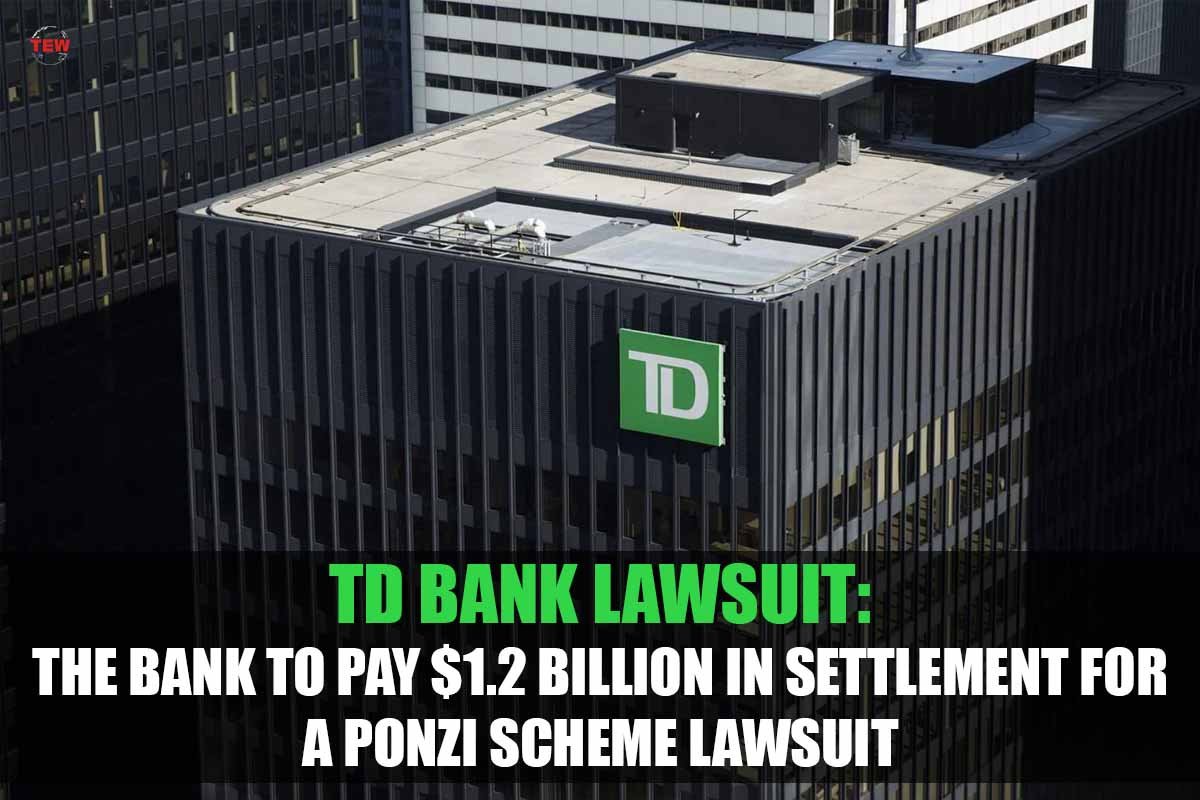TD Bank Lawsuit, the American subsidiary of Toronto-Dominion Bank, has agreed to pay $1.2 billion to settle a lawsuit related to its role in a Ponzi scheme run by Florida lawyer Scott Rothstein.
Rothstein, who is currently serving a 50-year prison sentence for his crimes, ran a massive Ponzi scheme in which he sold investments in phony legal settlements to investors. He used TD Bank Lawsuit accounts to launder the funds and keep the scheme going.
What was the lawsuit about?
The lawsuit, which was filed by investors who lost money in the scheme, alleged that TD Bank Lawsuit ignored warning signs and allowed Rothstein to continue his illegal activities for years. The bank was accused of turning a blind eye to suspicious activity and failing to properly monitor Rothstein’s accounts.
The settlement was reached after years of legal battles, including a previous settlement offer of $170 million that was rejected by the plaintiffs. The new settlement includes a $400 million payment to the plaintiffs, as well as $800 million in forfeiture to the U.S. government for violating banking regulations.
In a statement, TD Bank said it was “pleased to have resolved this matter” and that it had “taken extensive steps” to improve its anti-money laundering controls and compliance procedures.
TD Bank Lawsuit update:
The largest settlement involving a Ponzi Scheme
The settlement is one of the largest ever reached by a bank in a case involving a Ponzi scheme. It is also a significant financial hit for TD Bank, which has been grappling with legal issues in recent years.
In 2017, the bank agreed to pay $97 million to settle a class-action lawsuit related to its role in a separate Ponzi scheme. That case involved a fraudster named Nevin Shapiro, who used TD Bank Lawsuit accounts to run a scheme involving fake investments in sports tickets.
TD Bank has also faced scrutiny over its ties to payday lenders and other high-risk businesses. In 2016, the bank agreed to pay $52.5 million to settle allegations that it failed to properly monitor accounts tied to a Ponzi scheme run by a now-deceased attorney named Scott W. Rothstein.
What is its impact on the bank?
The settlement is expected to have a significant impact on TD Bank’s financial results for the first quarter of 2023. In a regulatory filing, the bank said it would record a pre-tax charge of $1.1 billion in connection with the settlement.
The settlement also highlights the ongoing efforts by regulators to hold banks accountable for their role in facilitating financial crimes. The U.S. government has been stepping up enforcement actions against banks that fail to properly monitor their accounts and detect suspicious activity.
In recent years, banks have paid billions of dollars in fines and settlements related to anti-money laundering violations and other compliance failures. The TD Bank Lawsuit settlement is the latest example of the steep financial and reputational costs that banks can face for their compliance lapses.





